#Ammophila
Explore tagged Tumblr posts
Text
Cuckoo wasps make the perfect ping pong balls....if you're a Sphecid!
Sphex ichneumoneus and Ammophila sp. enjoying a game made possible by their Chrysidid friend. This concept was inspired by an old doodle from 2018.

#entomology#wasps#wasp#insect#hymenoptera#apocrita#aculeata#cartoon#Apoidea#Chrysidoidea#Chrysididae#Chrysis#Sphecidae#Sphexichneumoneus#Ammophila#pingpong#game#silly#comic
295 notes
·
View notes
Photo
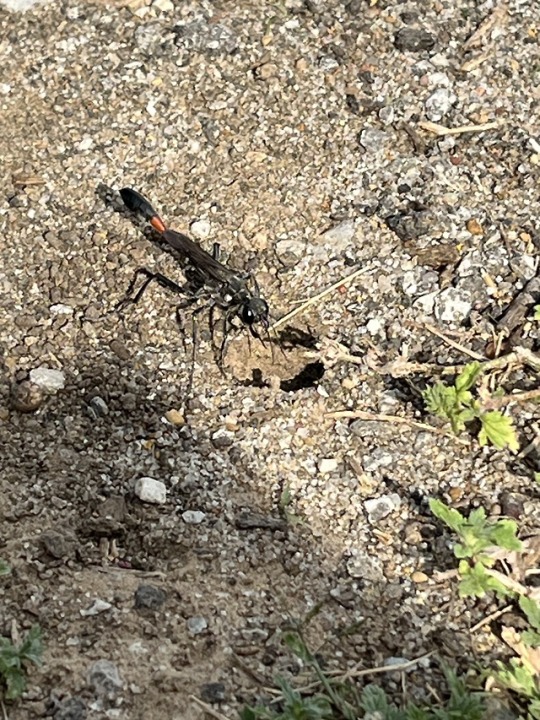
Spinch (c**********[email protected]) submitted: hello! this little fella was digging a hole by my bus stop out in oklahoma and my friend said it might be a mud dauber of sorts! was she perhaps correct?
Hi! This lovely lady is a thread-waisted wasp in the genus Ammophila - probably Ammophila procera. This species digs nests in the ground, so she is not a mud dauber. Mud daubers use mud to create nests on surfaces.
57 notes
·
View notes
Text


Some type of thread-waisted sand wasp! Ammophila is the genus. iNaturalist had three different species guesses that all looked identical to me. If you feel confident you can identify it, here's the observation link! Seen on 5/19/2024 in central Illinois.
#bugs#bugblr#insects#insect#bug#entomology#oc#iNaturalist#wasp#wasps#hymenoptera#ammophila#sphecidae
18 notes
·
View notes
Text

Field Sand Wasp, Ammophila campestris Canon 400D EF 100 2.8 f/11 1/160 iso: 400 Milovice, Czech Republic 6/18/2009
#SandWasps#Wasps#hymenoptera#Ammophila#Sphecidae;#insects#nvertebrates#macro#grasslands#invertebrates#insectphotography#macrophotography#insect#canon
2 notes
·
View notes
Text
Other specialized epidermal cells, such as lithocysts, bulliform cells, silica cells, and cork cells (Figure 19.9), are found only in certain groups of plants and are not studied as well.
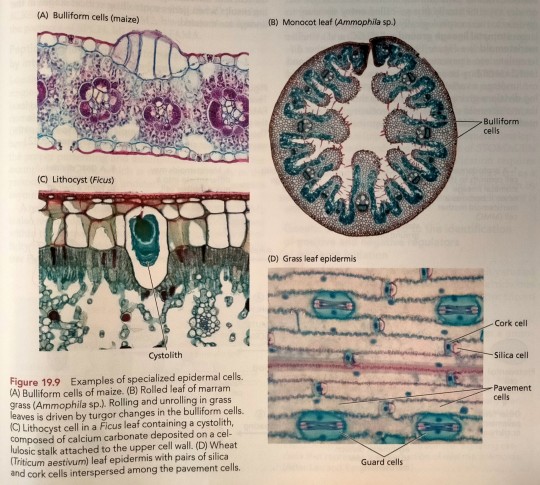
"Plant Physiology and Development" int'l 6e - Taiz, L., Zeiger, E., Møller, I.M., Murphy, A.
#book quote#plant physiology and development#nonfiction#textbook#plant cells#epidermis#epidermal cells#lithocysts#bulliform cells#silica cells#cork cells#maize#corn#zea mays#ammophila#ficus#grass#pavement cells#guard cells#microscopy
7 notes
·
View notes
Text
#2751 - Calamagrostis arenaria - European Marram Grass

AKA Arundo arenaria, Ammannia coccinea purpurea, Ammannia teres, Ammophila australis, and Ammophila arenaria.
The current binomial comes from Kalamos, a Greek mythical figure who was turned into a reed, and agrostis, a Greek word for ‘grass’ from agrotes ‘of the field’. arenaria means 'sand dweller'. Since Ammophila means 'sand lover' the previous name meant 'Sand-loving sand dweller'. You'd certainly hope so.
Native to Europe and North Africa, but introduced to other parts of the world where it is now A Problem. Introduced to Aotearoa (by idiots) after native vegetation was removed (by idiots) and the coastal sand dunes were suddenly freed to stroll across the landscape. It's highly invasive, virtually unpalatable to livestock, and rapidly driving native dune plants to extinction. At least there's a native moth that finds it palatable.
Can survive burial in sand for over a year. The blades are tightly furled to trap moist air, making it highly drought resistant.
Dunedin, Aoteoroa New Zealand.
0 notes
Text

Common Thread-waisted Wasp (Ammophila procera)
July 15, 2024
John Heinz National Wildlife Refuge, Tinicum, Pennsylvania
I've said it before, but I hate finding some cool new-to-me bug and finding out it has the word "common" in its name.
#bug#bugs#photographers on tumblr#Ammophila procera#Common Thread-waisted Wasp#bugblr#entomology#insects#insect#nature#wildlife photography#animals#wasp#wasps#hymenoptera
135 notes
·
View notes
Text

"Beach Grass"
"This image shows a 30μm cross-section of beach grass (Ammophila arenaria) stained with Auramin O and Safranin and viewed under fluorescence blue excitation. The grass came from a friend’s garden in Vienna. For the best results, I had to slice the sample as thinly as possible. First, I fixed some stems in warm liquid polyethylene glycol. As it cools down, it turns solid, and the embedded stems are placed in a microtome and sliced with a sharp blade. Staining and preparing the sample was very tricky. I had to use the tiniest brush to manipulate the less than 1mm parts in different staining and chemical solutions before positioning the stems on the slide. After that, taking the photograph was the easy part!"
By Gerhard Vlcek
Close-Up Photographer of the Year
#gerhard vlcek#photographer#close-up photographer of the year#close-up#micro photography#beach grass#ammophila arenaria#nature
31 notes
·
View notes
Text

Ammophila breviligulata
#Atlantic ocean#beachside#dunes#grass#in the sand#waterfront#beachfront#photography#Ammophila breviligulata#my photos
3 notes
·
View notes
Text
- A female Ammophila using a tiny pebble, seed, or piece of wood to fill in the entrance of her burrow
*tamp tamp*
ah i see youve noticed me tamping down the soft earth
#did u know ammophila digger wasps have been known to use tools? it's an extremely cool combination of instinctual behaviour#they're also soooo chill like scientists have remarked on how easy they are to work with chill#the solitary ones tend to be like that
267K notes
·
View notes
Text
@browzerhistory submitted: found a weird guy doin weird stuff in [removed] (remove location pls :3)
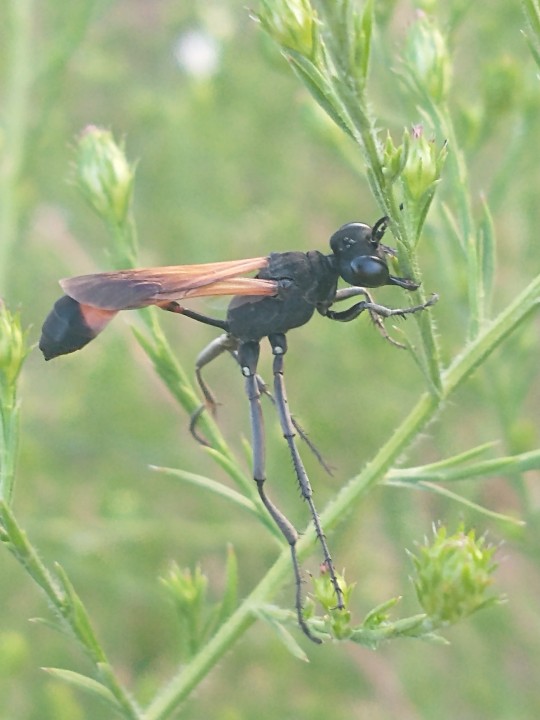
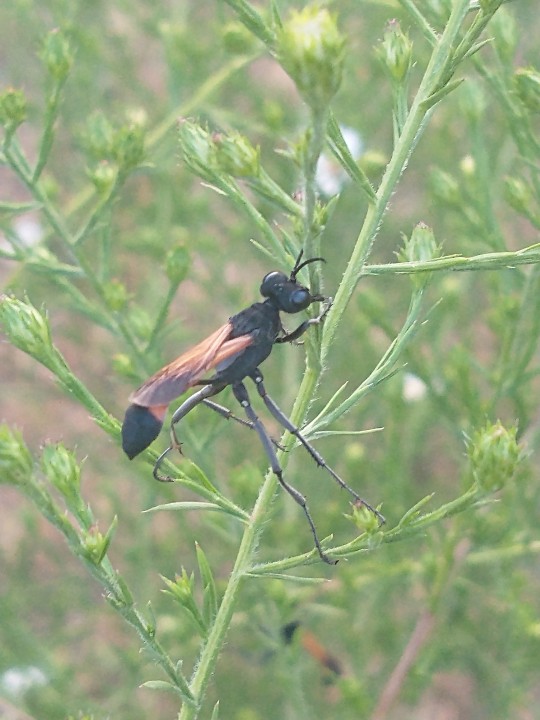
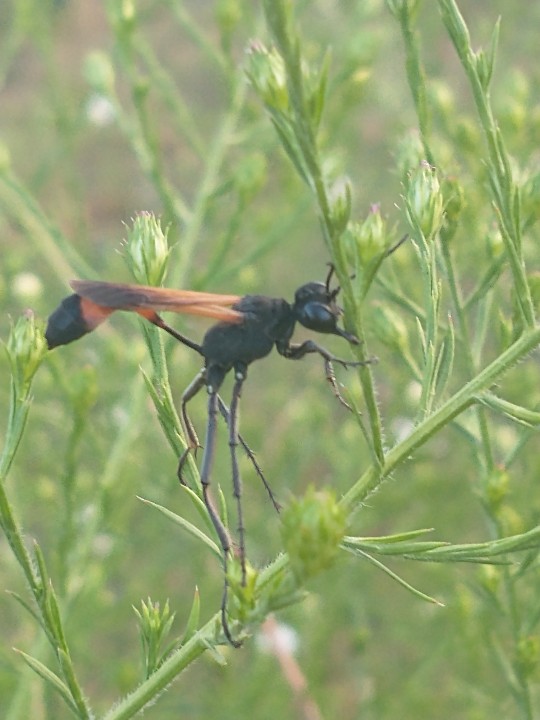
i think it's some sort of wasp? there were two or three on the plant, which was an aster. they were all sitting like that, sort of biting the plant, and barely moving except for wiggling their butts and the occasional antennae twitch, even when i got really close to get these photos. there was a bee and a fly acting strangely too - my dad thinks it's just because it was cooling down outside but i'm not sure. any idea what this could be?
This sweet lil friend is a thread-waisted sand wasp, Ammophila pictipennis. They'll grip plants with their mandibles and chill out when it's night time or if it's too cold out. Sort of their version of sleeping. Takin' a lil wasp nap :)
#animals#insects#bugs#submission#wasp#thread waisted wasp#thread waisted sand wasp#Ammophila pictipennis
123 notes
·
View notes
Text
Beautiful Ammophila pectipennis Wasps Love the Nectar of Fall Wildflowers
Wasp with an Appetite. Until 2023, I had never seen, or at least never noticed these beautiful Ammophila pectipennis wasps. They’re supposed to be fairly uncommon and don’t even have a common name. Since 2023, I’ve seen quite a few of them, especially in the fall. I haven’t seen as many this fall as I did last fall, but there are still quite a few, particularly on the blackjack flowers. I love…
#Ammophila pectipennis#Ammophila pectipennis wasps#Ammophila wasps#beautiful insects#black and red wasps#colorful insects#colorful wasps#fall wasps#Florida insects#Florida wasps#genus Ammophila#insect photographs#insect photography#insects#large insects#solitary wasps#thin wasps#wasp photography#wasps feeding#wasps photographs
0 notes
Text
ever protected by the frankincense fumes of her faith, alicent favors jasmine scented bath oil. from the lush gardens of the reach, floral is home — where she takes refuge. jasmine is less offensive and quieter then other florals, and she wears it like a sigil.
consequently, all of her children grown into the same scent pallet.
aegon doesn’t really care. the servants can put whatever oil into his bath that they chose, and he will not protest. jasmine just hasn’t left the warm water since he was a child, bathed in his mothers safety. it mixes with the syrupy sweet smell of grapes and spice, mulled wine, that drips from his tongue when he opens his mouth.
helaena likes the smell of jasmine, it makes her think of her mother — and when her mother was happy. it compliments the earthy scent that sticks to her skin from hours spent in the gardens looking for creatures in the dirt. petrichor and rosemary follow suit, dancing through the smooth strands of her silver hair.
of alicent’s children, aemond is the most fond of the floral scent. jasmine oil flows heartily into the water of his methodical bath. it gives him an obsessively clean scent, mixed with the heavy lye soap he scrubs his skin near raw with.
rhaenyra never favored overly ‘feminine’ scents. if she smelled like dragon and smoke, she was keen to lean into fragrances that covered that. cetalox and amber bear enough ambiguity to cover what she does. the frankincense smoke that sticks in her hair on the worst days revelas more than it covers — a yearning for something lost.
ever his mothers son, jacaerys follows in her amber scented footsteps. warm and heady, sweet spice and patchouli mark his presence. they blend well with the smokey scent he can’t quite scrub from his skin ��� too much time on dragon back. hair is cherished on dragonstone, and the lavender oil that soaks his curls every fortnight softens the intoxicating fragrance of his being.
cregan is ever bound to the north, the smell of pine trapped in his hair, and under his skin. warm and grounding, cedar wood and vetiver make his embrace even safer, crowing his thick furs with the smell of home.
⋆。𖦹°⭒˚。⋆
viserys — lily, nettle, lavender
otto — oolong, jasmine, mugwort
alicent — frankincense, jasmine, rose
aegon — jasmine, black currant, honey
helaena — jasmine, petrichor, rosemary
aemond — jasmine, lye, leather
gwayne — patchouli, bergamot, satinwood
criston — frankincense, jasmine, allspice
rhaenyra — cetalox, amber, frankincense
jacaerys — amber, patchouli, lavender
lucerys — bergamot, sandalwood, pear
daemon — leather, pepperwood, ambretone
baela — palo santo, pamplewood, amber
rhaena — pamplewood, honeysuckle, blood orange
rhaenys — lemon grass, vetiver, hazelnut
corlys — sandalwood, ammophila, beech
laenor — green patchouli, vanilla, nootka
laena — vanilla, pear, pamplewood
addam — manuka, sandalwood, elderberry
alyn — ammophilia, manuka, sandalwood
cregan — pine, cedar wood, vetiver
alys — elderberry, clay, sage
larys — oakmoss, anise, chamomile
#plus stinky for everyone (no one was bathing it was like 1400)#aemond smells like jhag not a perfume#you know?#wrote this at 2am 🫡#i’m insane i’m sorry#something of a fragrance connoisseur#alicent hightower#alicent hightower x reader#aegon targaryen#aegon targaryen x reader#helaena targaryen#helaena targaryen x reader#aemond targaryen#aemond targaryen x reader#rhaenyra targaryen#rhaenyra targaryen x reader#jacaerys velaryon#jacaerys velaryon x reader#cregan stark#cregan stark x reader#𖦹。⋆ jace#𖦹。⋆ cregan#hotd#house of the dragon#local sniffer headcanons how medieval people would smell#scent is my favorite sensory thing
355 notes
·
View notes
Text
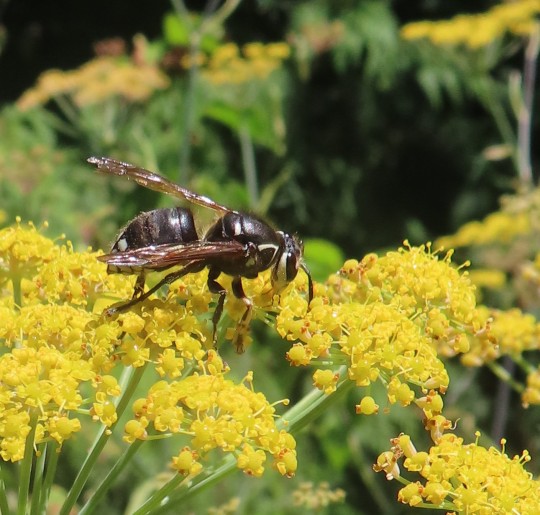
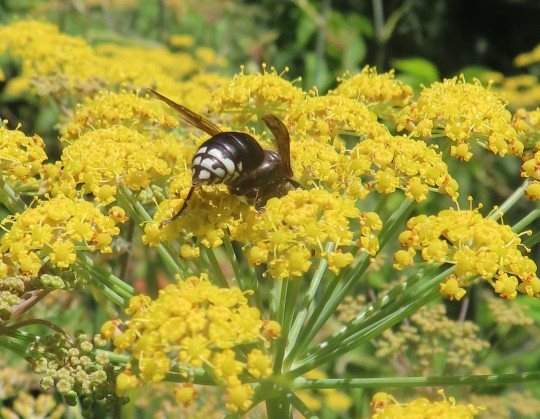
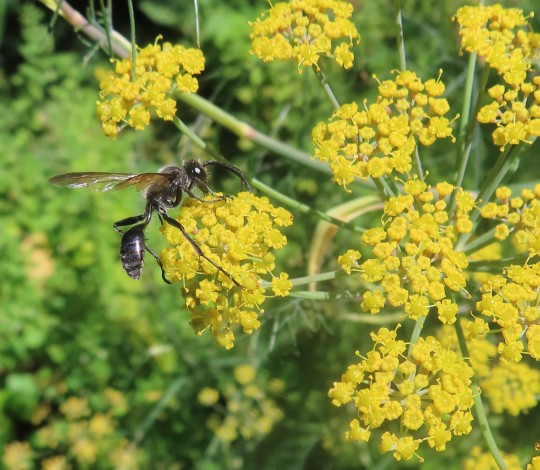
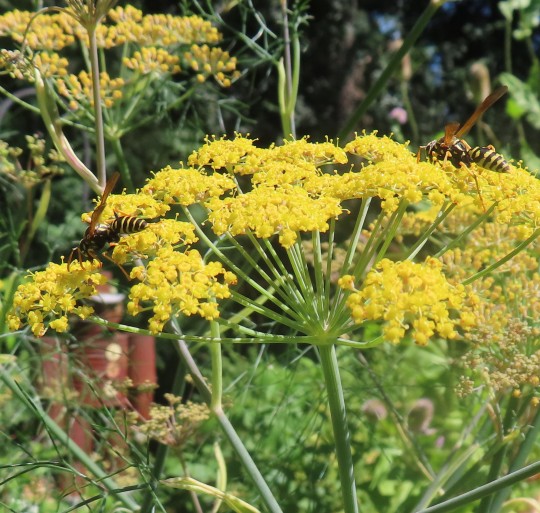
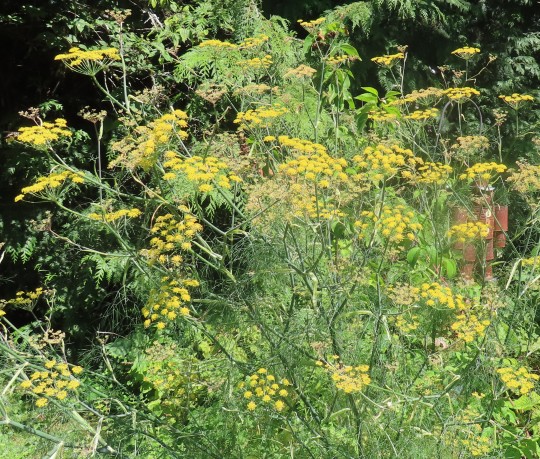
Foeniculum vulgare (fennel) and (Dolichovespula maculata (bald-faced hornet) plus Ammophila procera (common thread-waisted wasp)
We planted this fennel three or four years ago so this short-lived perennial is probably at the end of it's natural lifespan. Fennel looks much like it's relative dill (Anethum graveolens) but fennel is usually much bigger and twice as tall (up to eight feet). Both fennel and dill impart a liquorish flavor to food and both have edible bulbs.
Fennel is a member of the carrot family Apiaceae and in early August, it's like an insect magnet. Like bees, these wasps drink nectar to generate the energy to fly. But, unlike bees, wasps are also voracious meat-eaters and provide your garden with a form of natural caterpillar control.
#flowers#photographers on tumblr#fennel#wasp#hornet#fleurs#flores#fiori#blumen#bloemen#our garden#tinman#Vancouver
81 notes
·
View notes
Note



no need for ID, I am just here to offer some bug ass I photographed while at a state park
Cuties!
Long-legged fly (Condylostylus sp.), Tachnid fly (Archytas sp.), and Comon Thread-wasted Wasp (Ammophila procera).
79 notes
·
View notes
Text
Wasps enter the stone age
Think about animals that use tools. The first ones that come to mind are probably us, other primates and birds. Some of you may think of octopods and even sea urchins. But we don't usually associate insects with tool use.
Here it's important for me to distinguish between tool use and construction. Construction can involve the usage of external materials to build structures that aid the animals - think carpenter bees and termites. Tool use, on the other hand, involves the use of external material to aid in a specific task. Crucially, tools are often discarded after the task is complete.
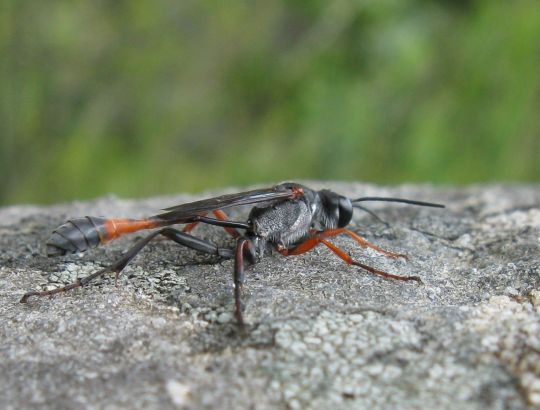
ID: a close-up image of a species of digger wasp, Ammophila ferrugineipes. It has a black body with orange sections on its abdomen and legs. The body is incredibly slender, more so than the more common yellowjacket wasps. It is sat upon a grey rock, and the background is a blurred green.
Digger wasps are a group of wasps that make a nest for their young by, you guessed it, digging. Whilst some wasps use their abdomens to pack down dirt, some use their heads and mandibles to do the same. And interestingly, almost all of these wasps are also NERDS and have figured out how to use tools. They'll take stones and pebbles and repeatedly tap the soil in order to compact it, thereby improving the structural integrity of their burrows. Whilst some then use those stones to block the entrance, most will just throw them away after use.
Isn't that cool? Wasps! In the stone age! Just goes to show that neural complexity and tool use don't really go hand in hand, and that surprising behaviours can develop all across the animal kingdom.
70 notes
·
View notes